Despite critical advancements in the tech solutions available to conservationists worldwide, many existing tools are cost-prohibitive in the landscapes that need them most. Additionally, those who create low-cost and open-source alternatives to pricey market tech often operate on tight budgets themselves, meaning they need more resources to promote their solutions to a broader market. We need increased communication around these solutions to highlight their availability, share lessons learned in their creation, and avoid duplication of efforts.
This group is a place to share low-cost, open-source devices for conservation; describe how they are used, including what needs they are addressing and how they fit into the wider conservation tech market; identify the obstacles in advancing the capacity of these technologies; and to discuss the future of these solutions, particularly their sustainability and how best to collaborate moving forward. We welcome contributions from both makers and users, whether active or prospective.
Here is how we see the current OSS space and how this group plans to change it by supporting both makers and users:
Many users do not appreciate the significant benefits of open-source tech. This group will educate users about the advantages and the need for open-source tech, specifically in the context of ecology work. We achieve this by stimulating regular discussions on the forum and by encouraging and supporting users to use open-source tools wherever possible.
Building OSS can be difficult. We want to support both established and potential makers who wish to develop OSS. The OSS group is a place where makers can find funding opportunities, ask current and potential users questions, and share their technologies.
Using OSS can be difficult. We also want to support adopters of OSS tech. We do this by offering a place for users to share challenges they face and crowdsource advice on things like technology choice or technical support.
Makers do not know what users want or need. The OSS group is a place that facilitates conversations between makers and users. This will give users a voice and ensure that makers are aware of the needs of users, enabling them to build better solutions.
The community is small and scattered. We want to grow an inclusive community of OSS practitioners. Our goal is to become the go-to place for discussions on the topic where people feel a sense of belonging.
Resources for getting started
- How do I use open source remote sensing data in Google Earth Engine? | Tech Tutors
- How do I use open source remote sensing data to monitor fishing? | Tech Tutors
- Low Cost, Open Source Solutions | Virtual Meetup
- What would an open source conservation technology toolkit look like? | Discussion
- December 2024 Open Source Solutions Community Call
Header image: Shawn F. McCracken
Group curators
- @Nycticebus_scientia
- | he/they
MammalWeb.org
Co-founded citizen science camera-trapping project with interest in developing 100% open source wildlife tech. Advocate for open science/open research. Former Community Councilor of the Gathering for Open Science Hardware.



- 4 Resources
- 25 Discussions
- 3 Groups
trying to understand and improve the welfare of all animals that can suffer


- 4 Resources
- 6 Discussions
- 7 Groups
- @briannajohns
- | she/they
Gathering for Open Science Hardware (GOSH)
Interested in the application of open source technologies for conservation research.



- 9 Resources
- 5 Discussions
- 4 Groups
No showcases have been added to this group yet.
- @Robincrocs
- | He/Him//El//Ele
Wildlife biologist, works with Caimans and Crocodiles
- 0 Resources
- 0 Discussions
- 15 Groups
- @StephODonnell
- | She / Her
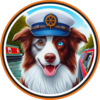


- 196 Resources
- 676 Discussions
- 31 Groups
Hello, I am a PhD student studying birds and box turtles!
- 0 Resources
- 0 Discussions
- 8 Groups
- @DeepakSathyanarayan
- | he/his
Deepak is an experienced professional who has served in multiple leadership roles in technology, science, product development, and engineering programs. He has proven expertise in shaping and executing technology strategies across defense, space, health, and environment sectors.


- 0 Resources
- 5 Discussions
- 7 Groups
- @Halima_Hassan
- | She
Halima Hassan is a geographer, environmentalist, educator, and climate change activist who is passionate about bridging science, community, and conservation.
- 0 Resources
- 0 Discussions
- 6 Groups
- 0 Resources
- 0 Discussions
- 14 Groups
- @martinyonga
- | He/His
a Research Entrepreneur always looking for ways to demonstrate the interconnectedness of nature & our livelihoods
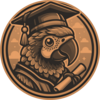
- 0 Resources
- 0 Discussions
- 3 Groups
- 0 Resources
- 1 Discussions
- 7 Groups

- 0 Resources
- 0 Discussions
- 15 Groups
- @otgonbayartm
- | He / His
Many thanks to WILDLABS. This community aligns precisely with my professional interest in applying IT expertise to nature conservation.

- 0 Resources
- 1 Discussions
- 7 Groups
- @briannajohns
- | she/they
Gathering for Open Science Hardware (GOSH)
Interested in the application of open source technologies for conservation research.



- 9 Resources
- 5 Discussions
- 4 Groups
- @sopara
- | She/her
- 0 Resources
- 0 Discussions
- 4 Groups
The Marine Innovation Lab for Leading-edge Oceanography develops hardware and software to expand the ocean observing network and for the sustainable management of natural resources. For Fall 2026, we are actively...
24 July 2025
Lead a growing non-profit to sustain open source solutions for open science!
19 July 2025
In this case, you’ll explore how the BoutScout project is improving avian behavioural research through deep learning—without relying on images or video. By combining dataloggers, open-source hardware, and a powerful...
24 June 2025
Weeds, by definition, are plants in the wrong place but Weed-AI is helping put weed image data in the right place. Weed-AI is an open source, searchable, weeds image data platform designed to facilitate the research and...
7 May 2025
Bringing you the latest in open-source technology for agriculture. This accompanies the Open Source Agriculture respository: Collating all open-source datasets, software tools and deployment platforms related to open-...
1 May 2025
Repository for all things open-source in agricultural technology (agritech) development by Guy Coleman. This accompanies the OpenSourceAg newsletter. Aiming to collate all open-source datasets and projects in agtech...
1 May 2025
Fires in Serengeti and Masai Mara National Parks have burned massive areas this year. With Google Earth Engine, it's possible to quantify burn severity using the normalized burn ratio function, then calculate the total...
29 April 2025
Conservation International is proud to announce the launch of the Nature Tech for Biodiversity Sector Map, developed in partnership with the Nature Tech Collective!
1 April 2025
Modern GIS is open technology, scalable, and interoperable. How do you implement it? [Header image: kepler.gl]
12 March 2025
Join the FathomNet Kaggle Competition to show us how you would develop a model that can accurately classify varying taxonomic ranks!
4 March 2025
Last month, we spent four days trekking through Cerro Hoya National Park in Panama, where we hiked from near sea level up to the cloud forest to deploy Mothboxes.
14 February 2025
August 2025
event
September 2025
event
event
October 2025
event
March 2024
event
November 2023
event
| Description | Activity | Replies | Groups | Updated |
|---|---|---|---|---|
| Congratulations! My first hydromoth was just arrived yesterday and so excited! Looking forward for the update from your project!!! |
|
Acoustics, Animal Movement, Climate Change, Conservation Tech Training and Education, Data management and processing tools, Emerging Tech, Open Source Solutions, Protected Area Management Tools, Sensors, Software Development, Latin America Community | 1 year 3 months ago | |
| Hi @zhongqimiao ,Might you have faced such an issue while using mega detectorThe conflict is caused by:pytorchwildlife 1.0.2.13 depends on torch==1.10.1pytorchwildlife 1.0.2.12... |
+6
|
AI for Conservation, Camera Traps, Open Source Solutions | 1 year 3 months ago | |
| Hi, this is pretty interesting to me. I plan to fly a drone over wild areas and look for invasive species incursions. So feral hogs are especially bad, but in the Everglades there... |
|
AI for Conservation, Camera Traps, Open Source Solutions, Software Development | 1 year 3 months ago | |
| Gotcha, well I look forward to seeing future iterations and following along with your progress!! |
|
Autonomous Camera Traps for Insects, AI for Conservation, Emerging Tech, Open Source Solutions, Latin America Community | 1 year 3 months ago | |
| 'Most importantly, we have to make it play a MIDI version of the DoctorWho theme song when you arm the device. That has to be the #1 feature if you ask me!' Seconded! |
+9
|
Acoustics, Animal Movement, Emerging Tech, Open Source Solutions, Sensors | 1 year 3 months ago | |
| Hi Danilo. you seem very passionate about this initiative which is a good start.It is an interesting coincidence that I am starting another project for the coral reefs in the... |
|
Acoustics, AI for Conservation, Animal Movement, Camera Traps, Citizen Science, Climate Change, Community Base, Connectivity, Drones, Emerging Tech, Human-Wildlife Coexistence, Open Source Solutions, Sensors, Software Development, Wildlife Crime, Funding and Finance | 1 year 6 months ago | |
| I would recommend going with Ubiquity 2.4Ghz devices which have performed relatively well in dense foliage of the California Redwood forests. It took a lot of tweaking to... |
|
Acoustics, AI for Conservation, Connectivity, Open Source Solutions | 1 year 6 months ago | |
| Fire detection is a sort of broad idea. Usually people detect the products of fire, and most often this is smoke.Many home fire detectors in the US use a radioactive source... |
|
Community Base, Conservation Tech Training and Education, Data management and processing tools, Ethics of Conservation Tech, Human-Wildlife Coexistence, Open Source Solutions, Protected Area Management Tools, Sensors, Wildlife Crime | 1 year 6 months ago | |
| Super cool! thank you for sharing! |
|
Animal Movement, Open Source Solutions | 1 year 6 months ago | |
| Hi folks! Happy 2024 and thanks in advance for your patience in case I over-used tags. If you’re using any form of natural language... |
|
AI for Conservation, Citizen Science, Climate Change, Conservation Tech Training and Education, Data management and processing tools, Early Career, East Africa Community, Emerging Tech, Ending Wildlife Trafficking Online, Ethics of Conservation Tech, Human-Wildlife Coexistence, Open Source Solutions, Software Development, Wildlife Crime, Women in Conservation Tech Programme (WiCT) | 1 year 7 months ago | |
| This was one of my all time favourite Variety Hour talks! @wschan gave us an awesome walk through the open-source low cost acceleratometer... |
|
Animal Movement, Open Source Solutions, Sensors | 1 year 10 months ago | |
| ooh very cool Salman! Amazing how much tracking devices have come down in price over the years and LoRa/LoRawan is just such a perfect fit for GPS data. Thanks heaps for sharing.... |
|
Build Your Own Data Logger Community, Open Source Solutions | 1 year 11 months ago |
Lead Software Engineer for ARISE
19 August 2022 8:22am
CERES TAG
22 July 2022 3:36am
Earth Species Project - Senior AI Research Scientist
15 July 2022 6:40pm
How can open source tools make conservation tech more sustainable and accessible?
30 June 2022 6:56pm
Self-powered Buoy collecting vital sensor data -- Looking for conservation projects to collaborate with
18 May 2022 6:28am
3 June 2022 7:19am
Hello Aadithya,
Excited to hear about your marine acoustics outreach. I am interested to explore the possibilities of collaborative work on this line.
One of my doctoral scholars is about to submit his thesis on terrestrial acoustic studies. Please respond to jrnair@duk.ac.in (as I may likely miss responses if any, send to this group).
Regards
Jaishanker
14 June 2022 11:46am
Hi Jaishanker, I just reached out to over email, apologies for the delay. We are interested in working with underwater hydrophones and this might be of use in your specific case study. Bristlemouth's timeline is still being created, but we're hoping to have devkits ready closer to the end of this year. I'm happy to chat more to learn about the specific research you are doing and how we can best help!
21 June 2022 10:49pm
If you're looking to identify collaborators - probably lots of organizations listed in the Conservation Tech Directory would be interested (quick prelim search yields orgs like Echospace, European Tracking Network, FACT network, IMOS, IOOS, other tracking networks like that, USA's NEON, eOceans, Oceans+)! Also org's like Blue Ventures, Save our Seas (run acoustic tracking array), MBON (run Biotrack) come to mind.
On the lookout for CAD/Microcontroller work!
17 June 2022 5:04pm
Join Seeed’s “IoT Into the Wild Contest for Sustainable Planet 2022” on Hackster to Get 100 Free Hardware and to Win $14,000+ in Prizes!!
14 June 2022 11:04am
UKAN+ Monitoring UK Biodiversity Symposium 15-16th June
31 May 2022 2:58pm
Apply to the 2022 GOSH Gathering in Panamá!
29 March 2022 9:46pm
26 April 2022 11:01am
There are only a few days left to apply to the 2022 Gathering for Open Science Hardware! Join a community of scientists, hardware developers, artists, and activists working together on open hardware for science!
Gathering for Open Science Hardware - Panama Oct 2022
6 April 2022 10:58pm
GOSH Regional Events Funding - Second Round Now Open!
14 March 2022 11:00am
Call for solutions on technology for conservation impact
4 March 2022 2:16pm
Identification of Wildlife in Camera Trap Images
20 December 2021 12:00am
Deep Learning for Marine Ecology and Conservation
20 December 2021 12:00am
Tech Tutors: How do I turn a conservation tech project into a product?
27 October 2021 11:23am
How do I get started with OpenCollar Edge Trackers?
27 October 2021 12:00am
How do I turn a conservation tech project into a product?
20 October 2021 12:00am
What would an open source conservation technology toolkit look like?
23 March 2019 1:50am
28 April 2021 1:58am
Hi Akiba, [not sure if I'm on the right thread]
The Open-Source Tech Toolkit would need a repository for designs & specifcations. Regarding the latter, I'm a Technical Editor for a specification company. The format we use for the architecture & construction industry is suitable for any discipline [e.g. teaching students how to write a spec using our format/proforma they're given a task to write "how to tie their shoe laces"].
A specification defines qualities & standards (e.g. ISO, IEC). Drawings illustrate locations & quantity. Drawings are normally referenced back to the specification clauses.
I'd like to write an example of a specification for the Wildlogger, which will cover the many options for sensors, including references to approved/tested sensors and [if necessary] how they should be calibrated.
Looking over the horizon, what is the best repository for such Toolkit drawings and specifications?
If demand was large enough, and funding available, the company I work for could host the specifications and I'd maintain them full-time: There would be many advantages using our database over MS Word-based system.
Best Regards,
Nigel
28 April 2021 2:50am
Hi Nigel.
That's a very kind offer. I think currently github is the main repository I use for those kinds of documents. I like your idea and it'd be great to expand WildLogger out to a full featured data logger. The original intent of the design was as an educational tool to learn the programming concepts, but I didn't expect that people would deploy them in actual scientific applications. It's really cool.
As for specs and hosting, I'd actually prefer to keep them on github which is a popular platform and gets around the funding side of things. I've dealt with formal software specs and requirements in a previous corporate life but I think the scope of many of the projects we are undertaking is small enough that formal specs might not be needed. For the scale you're thinking, you might want to discuss with the Society for Conservation Biology or the larger organizations that are trying to plan out a roadmap for conservation biology.
Akiba
28 April 2021 10:52am
Hi Akiba,
Just found out from the marketing dept at my work the cost to host multiple specs - very expensive [$NZ 7K-10K].
Host it on GitHub for starters then. I'm a newbie to GitHub, so it's an opportunity to become familiar with it.
I'll begin by drafting a specification for the the Wildlogger with various peripherals/sensors other groups are testing for different scientific applications. It would be a standalone document in MS Word with hyperlinks to other docs, electronics suppliers, methodologies e.g. for calibrating sensors etc.
The doc will evolve over time, no doubt inform future development for the Wildlogger, possibly resulting in new variants. Knowledge won't be lost in the ether.
Nigel
Volunteer 3D Design Work (Simple) for Your Open Source Project!
19 April 2021 10:44pm
21 April 2021 7:23pm
Amazingly nice offer! Thanks!
I know how projects can sometimes be stressful. I had a bit of that feeling lately when having to figure out how to code a trap alarm my boss let me spend a lot of money for materials for.
Event: 2021 Open Hardware Summit
22 March 2021 12:00am
Data standards: How can WILDLABS support?
21 January 2021 10:14am
12 February 2021 6:09pm
As someone who has practiced in information technology standards groups and actively worked on data schema standards to facilitate data sharing and even legally valid business transactions (https://www.oasis-open.org/committees/download.php/31222/ENML-1.0-Specification.pdf), my experience indicates it is important that you do the following:
1) Create a small workgroup of the right stakeholders who are committed to the process and results;
2) Pick a schema definition language - JSON or XML - to create the standard (JSON is the flavor of the day, but it is possible to do both with the right commitment);
3) Get people trained on the methodology and grammar for creating the schema;
4) Build the right semantic model up to a level of detail that is feasible for implementation within one year - if you go deeper than that the people who need to get things done in the field will move on while the workgroup will still be arguing details;
5) Build the schema; and
6) Build at least reference tools and applications in at least 2 different programming languages that show the model and schema working.
Without this process, it will be easy to miss the forest by getting lost in the trees (apologies for that).
Arshad
18 February 2021 12:04am
I don't know that it would be possible to create one scheme across all fields and collection tools. I'm involved in a project trying to define shared data standards with 10 private companies in one sector and that's a multi-year discussion. KDEs for seafood traceability (not even a full schema) took 5 years. If by standards you mean general agreements in principles, then maybe working with the ODI would be a good approach (see the work they did on engineering). if you want to get to schemas, maybe check with Matt Jones at NCEAS, bc data science for ecology is his career's work.
18 February 2021 1:05am
Hi skatewing,
I'm not a domain expert like most people in this forum, but I have created XML schemas using object oriented (OO) principles in the past; the same capability exists with JSON schemas.
The important thing is to create a heirarchy of schemas, starting with a generalized schema definition that applies to all participants at the upper layer, and inherit that schema as one starts diving deeper. This permits specialized schemas at lower layers that meets the needs of smaller groups, but as one moves up the schema hierarchy, one finds common parent objects that can be shared with other groups.
If it is impossible to create it in a hierarchy for all group participants, it is possible to start with a smaller general schema that meets everyone's needs and then each specialized group can create independent hierarchies, which can then be linked as necessary (https://json-schema.org/learn/getting-started-step-by-step.html#references)
This capability of inheriting parent schemas, and linking to external schemas, allows simultaneous - yet separate - development by many groups without having to involve everyone all the time. You do need to bring together many people for a short while for the more general parts of the schema at higher levels; but once defined, it can segment out to smaller groups as specialized schema branches/hierarchies are defined.
Arshad
Webinar: How can data empower communities in marine management?
26 January 2021 12:00am
Opportunity: 2021 Ebbe Nielsen Challenge seeks open-data innovations for biodiversity
20 January 2021 12:00am
WILDLABS Tech Tutors: Season Two
24 November 2020 12:00am
How do I use open access remote sensing data to monitor fishing?
24 November 2020 12:00am
Tech Tutors: Review Session
3 September 2020 12:00am
Tech Tutors: Creating Custom Hardware with Arduino
12 August 2020 1:26am
19 August 2020 2:23pm
Hey Akiba
Super excited for the talk tomorrow, I've only just discovered Arduino so I'm really keen to learn more!
I would be very grateful for any advice regarding using Arduino to programme AudioMoths. I'm potentially interested in exploring Arduino as I understand the Arduino Nano 33 BLE can be used to download self-taught models created on Edge Impulse?
Do you have any experience with Arduino used with Edge Impulse models? Due to 24hr activity of my subjects (human hunters), I need the AudioMoths 'listening' 24hrs, but ideally to save battery they will only be programmed to 'record' when identifying the correct sounds using trained data. Deployment will be 5 months in dense Amazon rainforest so getting the AudioMoths programmed for long durations would be incredible!
I'd appreciate any thoughts on this, thank you again!
Maxine
1 September 2020 11:44am
Hi Maxine.
I totally missed this post, but we'll be doing office hours once we kick off the Arduino series. In regards to your questions, at this moment, I don't see any environment to program the Audiomoth using the Arduino IDE and platform. You'd have to use a standard toolchain to program them which may be a bit daunting. I also haven't spent much time with Edge Impulse so I can't really comment on it.
It sounds like you're looking for a smart way to trigger your "audio trap" to record during a specific event. There may actually be a few potential solutions, especially if you are looking for human hunters. This could consist of motion detection, sound level detection, sound frequency detection (ie: chainsaws), photointerruption (think a chime when entering a shop), or many other ways. Perhaps we can discuss during one of the office hours. Or if you want to start a separate thread, it may be a good opportunity to brainstorm potential solutions.
Hope that helps.
Akiba
2 September 2020 11:28am
Hi Akiba
No worries, thanks for responding!
I'd love to delve into more detail on this once the new series has started and I have an idea of the tools and kit required! I think what you're proposing sounds like a real space and energy saver on the machines so very excited about this!
I'll look out for the series launch and definitely be in touch! :)
Thank you so much!
Maxine
Tech Tutors: How do I build bespoke conservation technology?
29 July 2020 9:06pm
20 August 2020 2:51pm
Hi Nigel
When talking about using switched regulators, does using e.g. 12V batteries with a 5V output extend the battery life or only slowly release the power so it doesn't short the device? I understand life-span is more to do with capacity and this is usually higher with voltage... but that's as far as my battery knowledge goes!
Any guidance would be greatly appreciated, thanks!
Maxine
21 August 2020 3:27pm
Hi Maxine,
A switched regulator rather than a fixed one doesn't use as much power trying to maintain a constant voltage. Most USB driven equipment will have internal power circuitry to reduce this further for the 3.3V etc that most chips require, so that if there are fluctuations in the 5V supply are of little consequence. This weblink gives you an explanation.
https://www.renesas.com/sg/en/products/power-management/linear-vs-switching-regulators.html
We built our own regulators at one stage but found the off the shelf ones that I highlighted in the talk generally only use an additional 5mA of current which on most remote solar/battery operating system is negligible.
Remember: Power in Watts= Volts x Amps so you will see less current drawn from your battery at higher voltage. Battery capacites are given in Ah or mAh which is the current multiplied by the operating time in hours.
Hope this helps and good luck with your work
Nigel
28 August 2020 4:43pm
Hi Maxine,
There are pros and cons to switching regulators and linear regulators. Linear regulators "throw away" the excess voltage in order to maintain a constant output voltage. This is wasteful, but on the plus side when the equipment is asleep then the linear regulator draws only microamps. A switching regulator is as high as 95+% efficient when running close to it's rated output, but when the equipment is asleep the quiescent draw might be in the milliamp range (1000x higher).
So linear regulators do best when they are powering equipment that sleeps a lot, and switchers do well otherwise, but you'd still need to do the sums. In general, switchers are most efficient when input and output voltages are not wildly different and the load is drawing not less than 5% of the rated current. Switchers can also be noisy, in the electrical sense. This can affect the quality of the data obtained, so some testing should be done. Choosing a switching regulator is more involved than choosing a linear regulator.
Thanks,
-harold
Argos Satellite Tag Open-Source Grant
17 August 2020 12:00am
Tech Tutors Recording: How do I get started with Arduino?
10 August 2020 12:00am


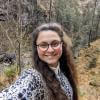


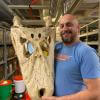



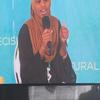


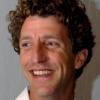










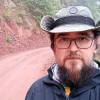




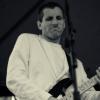




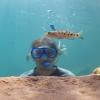


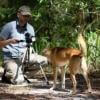













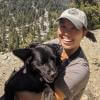




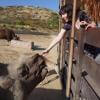
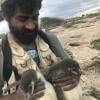



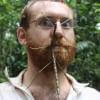











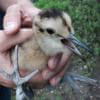

1 July 2022 4:14pm
I've been working with a current visiting scholar who's from China and has been interested in getting started with some acoustic monitoring studies when he goes back to China later this year. I've been working with him to try to figure out some options (with some help from folks met through Wildlabs!) but the name-brand stuff from Wildlife Acoustics is more than double what it would be in the states once customs and imports and exchange rates are taken into account. Open-source solutions that can be manufactured on the ground in countries where we're trying to do work can avoid many of those costs, support local economies, and even be good for the environment to the extent that you're avoiding the (minimal but non-zero) emissions of shipping stuff all over the place.